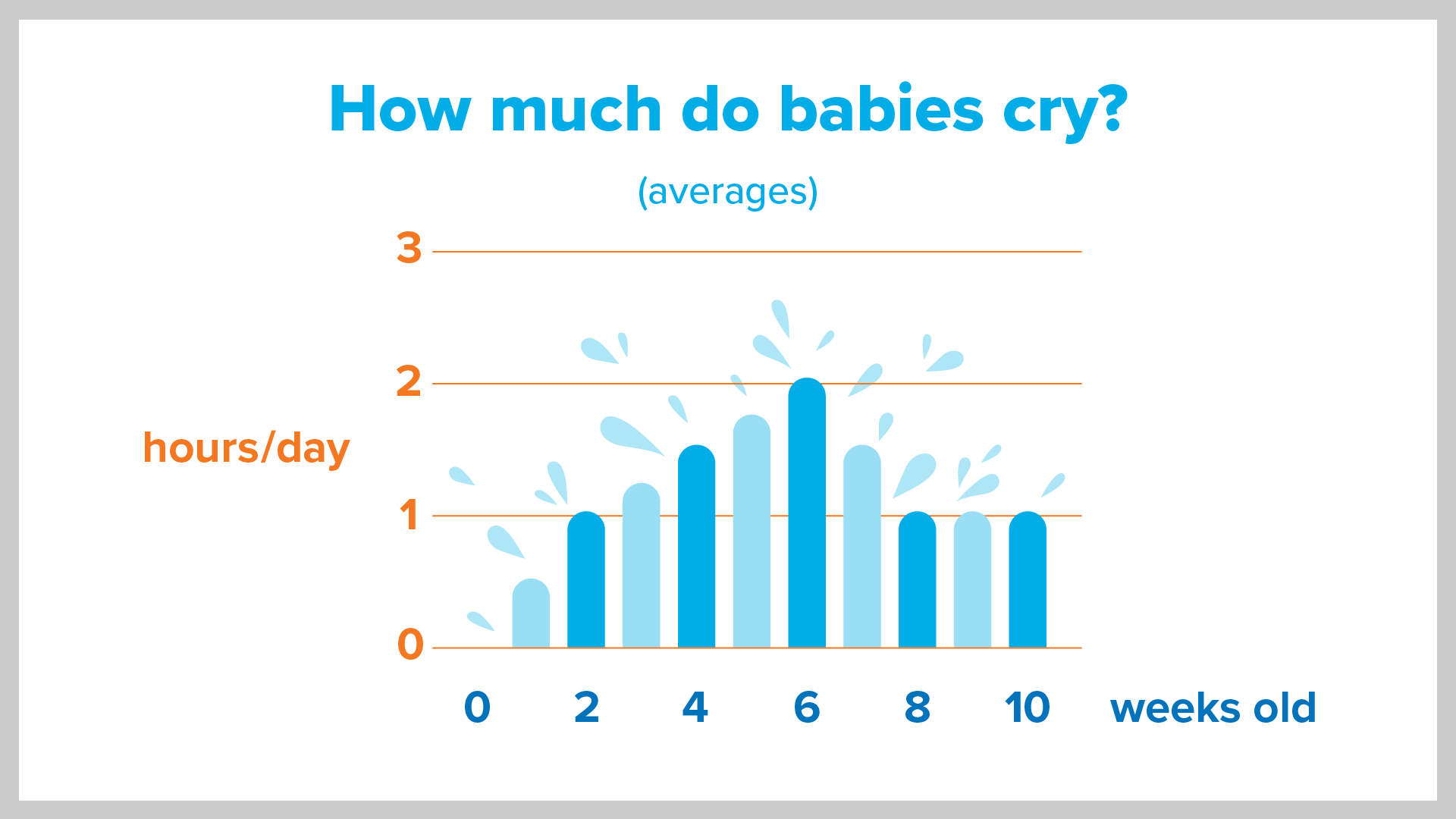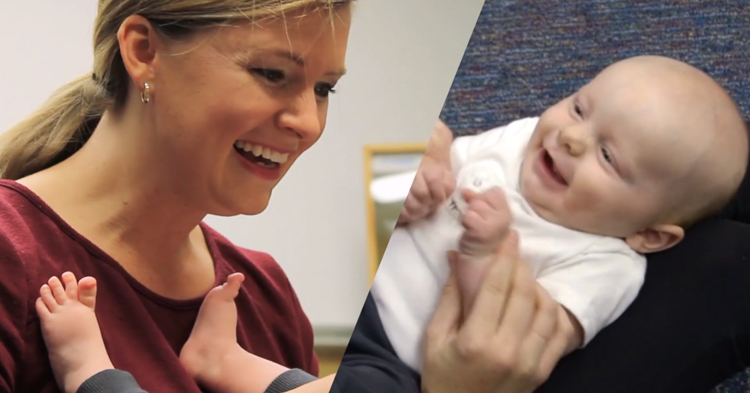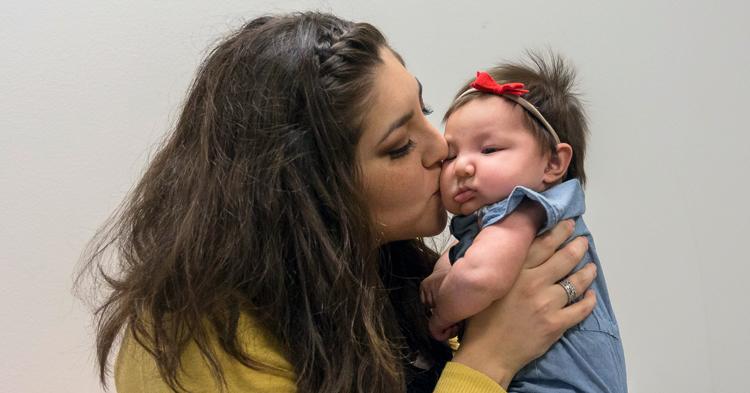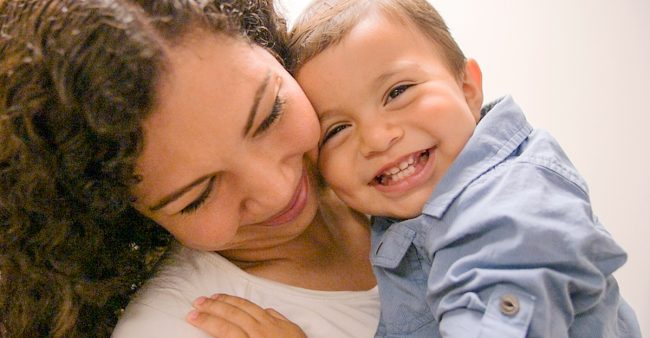Crying—we all do it. Sometimes we’re hurt, heartbroken or frustrated, and nothing less than turning on the waterworks will do. And by the time we have our own kids, we may have forgotten just how normal crying is. But unlike adults, babies don’t cry for the same emotional reasons. Instead, your baby may cry because they are hungry, wet or overstimulated.
On the same coin, another important lesson for new parents: a teary-eyed infant does not mean you are a bad parent. In fact, the American Academy of Pediatrics suggests that two to three hours of crying a day in the first three months is considered normal.

Start with the basics
Your baby may cry even more than that, but don’t take it personally. Your child is not trying to manipulate or anger you. When your baby is crying start with the basics. They may be hungry, have a wet diaper or experiencing discomfort. Try holding them close to your skin or wrapping them snug in a blanket, then gently rocking them up and down. Softly singing their or your favorite tune is a great way to soothe a fussy infant.
So, you have made sure your baby is clean, fed and comfortable, but they are still crying. What to do now? Your child may have colic. According to the Centers for Disease Control and Prevention, about one-fifth of babies develop colic due to an unusual sensitivity to stimulation or because they cannot “self-console” their nervous system. Colicky babies usually grow out of their crying phase by three to four months, but it can sometimes persist in children until six months of age. Contact your doctor to help you manage the colic, and seeking care will help lower your stress too.
Crying is communication
Remember, your baby is new to the world and taking in all the loud sounds, bright lights and new faces around them. They are desperate to communicate their wonderment to the people closest to them. That’s you. Once you begin to appreciate crying as their form of communication, you and your baby might both get some sleep.
Although crying doesn’t hurt anyone, including the baby, it can cause undue stress on new moms and dads. As in all matters of the heart, emotions run high. When your crying baby can’t be calmed, you might be tempted to try just about anything to get the tears to stop. But when you’ve sung every song and nothing else seems to work, remember it is never safe to shake your baby. This can result in abusive head trauma or ‘shaken baby syndrome’ which can lead to long term disabilities or even death.
If you find yourself reaching your limit, the hardest but often wisest thing to do is spend a few minutes alone from your crying child. Take some deep breaths. Do some stretches. Tell yourself that your baby isn’t doing this on purpose. Short breaks can give you the composure and patience you often need when facing a wailing kiddo.
More Information and Resources
- American Academy of Pediatrics: Guide to Coping with Crying Babies
- Southwest Human Development: Fussy Baby Program
- HealthyChildren.org: Colic Relief Tips for Parents





